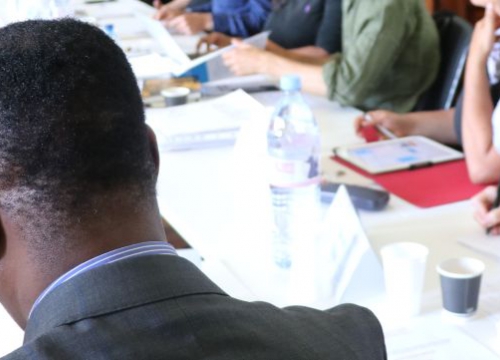The Geneva Human Rights Platform: A Dynamic Forum to Address Topical Human Rights Issues and Challenges


Geneva Academy
22 June 2018
The Geneva Human Rights Platform (Geneva HRP), hosted by the Geneva Academy and supported by the Federal Department of Foreign Affairs of Switzerland, provides a dynamic forum in Geneva for all stakeholders in the field of human rights – experts, practitioners, diplomats and civil society – to discuss and debate topical issues and challenges.
Exploring Synergies and Breaking Silos
Relying on academic research and findings, the Geneva HRP aims at enabling various actors to become better connected, break down silos and, hence, advance human rights.
‘The objective is to foster interactions and discussions on topical issues and challenges through regular events, conferences, expert roundtables and private meetings’ stresses Felix Kirchmeier, Director of Policy Studies at the Geneva Academy.
‘The Geneva HRP aims to increase sharing, exchange and collaboration among different actors by means of its independent, neutral and academic status’ adds Robert Roth, Director of the Geneva Academy.
Specific Focus
Specifically, the Geneva HRP concentrates on the current challenges to human rights and the way the United Nations (UN) Human Rights Council (HRC) and other Geneva-based mechanisms address or should address them, as well as on the work of UN treaty bodies.
‘We currently focus on two human rights challenges: use of force and the specific use of less lethal weapons for law enforcement purposes, and human rights and freedoms in the digital age’ underlines Kamelia Kemileva, Executive Manager at the Geneva Academy.
‘We accompany the work of UN treaty bodies via two projects, or sub-platforms, our Academic Platform on Treaty Body Review 2020 which just released its final report, and the Treaty Body Members Platform which connects experts in UN treaty bodies with each other as well as with Geneva-based practitioners, academics and diplomats’ underlines Felix Kirchmeier.
A Dedicated Online Presence
While the Geneva HRP is up and running since the beginning of the year, it has now a dedicated online presence, on the Geneva Academy website, which provides information about activities, events and related research.








